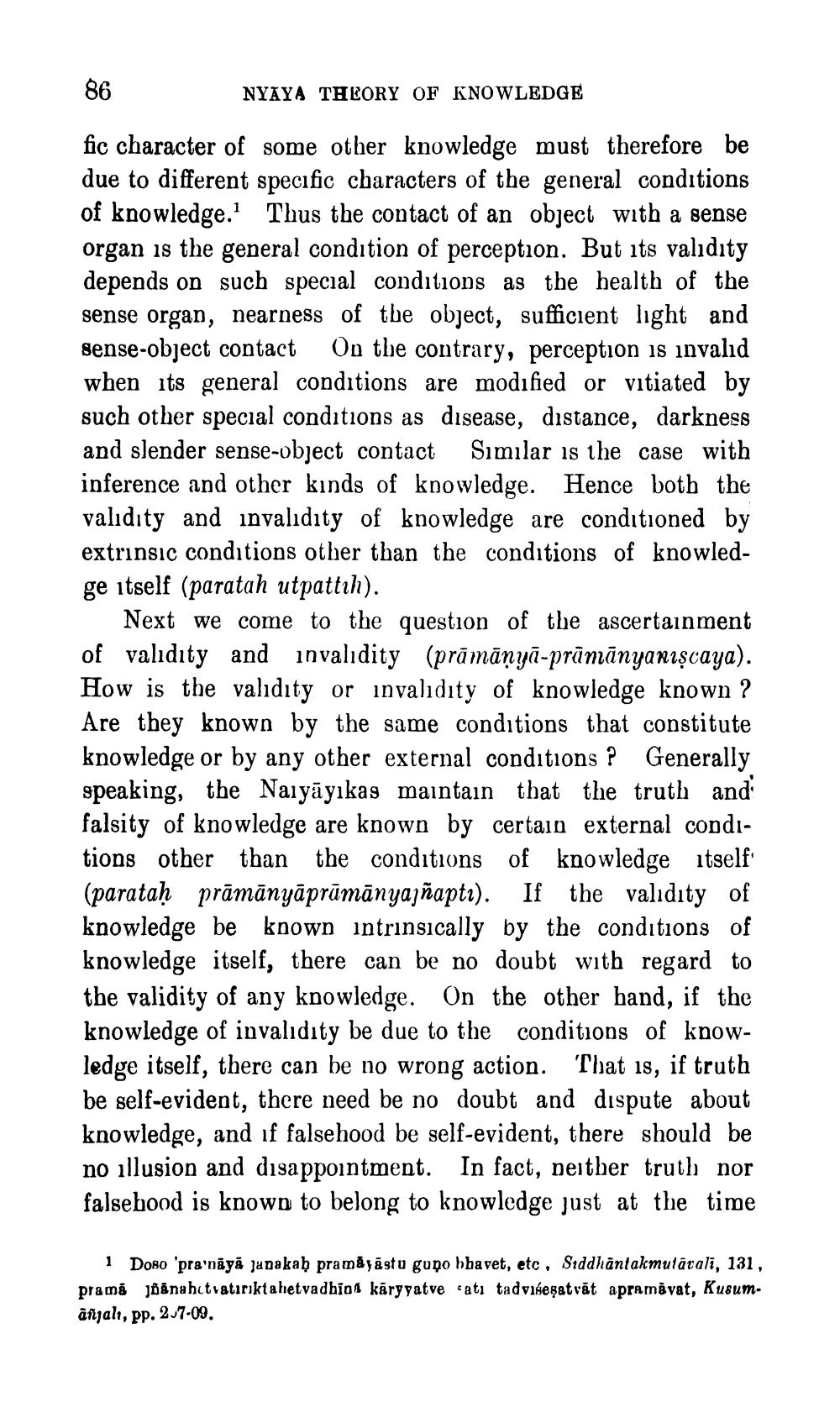________________
86
NYAYA THEORY OF KNOWLEDGE
fic character of some other knowledge must therefore be due to different specific characters of the general conditions of knowledge.1 Thus the contact of an object with a sense organ is the general condition of perception. But its validity depends on such special conditions as the health of the sense organ, nearness of the object, sufficient light and sense-object contact On the contrary, perception is invalid when its general conditions are modified or vitiated by such other special conditions as disease, distance, darkness and slender sense-object contact Similar is the case with inference and other kinds of knowledge. Hence both the validity and invalidity of knowledge are conditioned by extrinsic conditions other than the conditions of knowledge itself (paratah utpattih).
Next we come to the question of the ascertainment of validity and invalidity (prāmāṇyā-prāmānyanıṣcaya). How is the validity or invalidity of knowledge known? Are they known by the same conditions that constitute knowledge or by any other external conditions? Generally speaking, the Naiyayikas maintain that the truth and falsity of knowledge are known by certain external conditions other than the conditions of knowledge itself (parataḥ prāmānyāprāmānyajñaptı). If the validity of knowledge be known intrinsically by the conditions of knowledge itself, there can be no doubt with regard to the validity of any knowledge. On the other hand, if the knowledge of invalidity be due to the conditions of knowledge itself, there can be no wrong action. That is, if truth be self-evident, there need be no doubt and dispute about knowledge, and if falsehood be self-evident, there should be no illusion and disappointment. In fact, neither truth nor falsehood is known to belong to knowledge just at the time
1 Doso 'pra'nāyā janakaḥ pramāyāstu gupo bhavet, etc, Siddhantakmutāvalī, 131, prama jñānahctvatiriktahetvadhin karyyatve atı tadviseṣatvāt apramavat, Kusumanjali, pp. 27-09.




